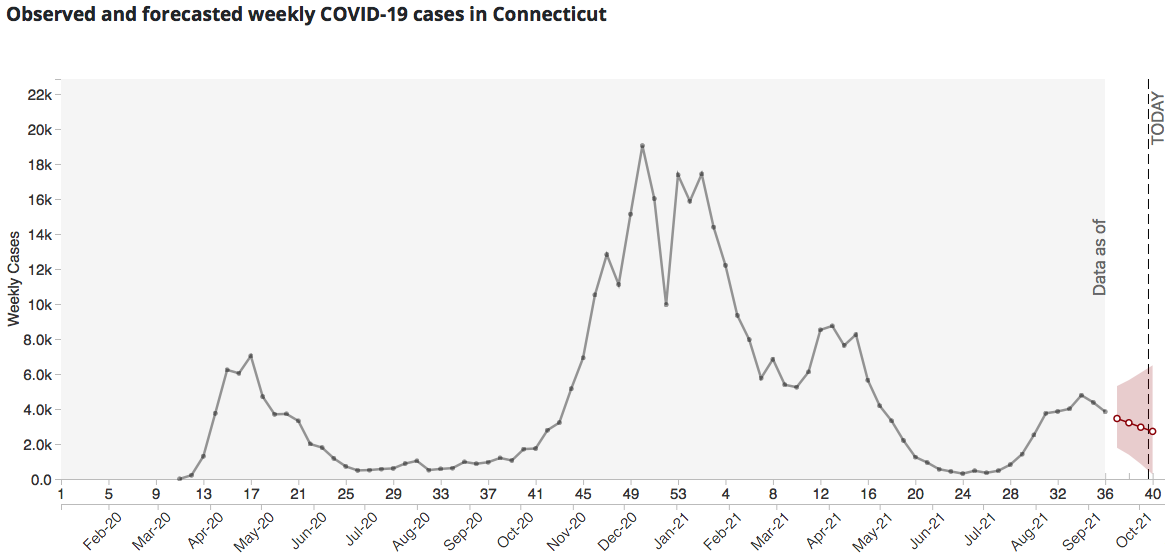COVID-19, in an unquantifiable mix of science and human behavior, typically moves through countries, states and towns in two-month waves. Cases, hospitalizations and deaths rise before dropping off, sometimes precipitously.
You can almost feel the waves in the graphics below, supplied by the Centers for Disease Control and Prevention (top) and the state Department of Public Health (bottom), that track cases in Connecticut, week by week, since the pandemic began in March 2020. You’ll see the early peaks last spring, then a period of relative dormancy in the summer, followed by a wave during the holiday season, a dip, then another surge.
We are now experiencing the possible remnants of the Delta variant. Dr. Scott Gottlieb, former commissioner of the Food and Drug Administration, now says that, barring a new variant or other COVID-19 surprise, this could be the pandemic’s final wave.

Hover over any part of the graph for more details:
Last winter's wave, with more people indoors and some ill-advised holiday socializing, was substantially greater than this summer's wave field by the more transmissible Delta variant. But Dr. Ulysses Wu, Hartford HealthCare’s System Director of Infection Disease and Chief Epidemiologist, said Delta had some help.
"There is COVID fatigue that is going on," he said last month during the height of Delta cases in the state. "All the vaccines are a beautiful thing and they're our way out of this pandemic. When people started getting vaccinations, the most important thing that needed to happen to stop cases was exhibiting the right social behaviors to prevent transmission.
"But once we started getting vaccinations, we kind of started partying maybe a little too much. We know the vaccine is not 100 percent protective. It's primary purpose is to take a deadly disease and turn it into a benign disease."
Ultimately, that's exactly what Dr. Gottlieb says is happening because of high vaccination rates and natural immunity. Even if the Delta wave were intensified by human behavior, COVID-19 is transitioning from a pandemic to an endemic disease that, like the seasonal flu, will remain in the population but at a low rate.
A final look at the CDC chart, above, reveals a projected downward shift in cases -- until perhaps the next time science and human behavior mix as the holidays approach.